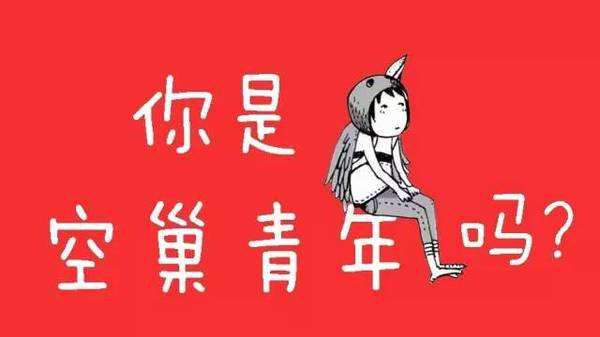当前位置: Language Tips> 新闻热词
3. 空巢青年
empty-nest youths

请看例句:
China has over 20m empty-nest youths aged 20 to 39, and most of them live in major cities, according to a recent survey.
最近一项调查显示,我国20-39岁的空巢青年数量已超过2000万,大部分空巢青年生活在大城市。
近来,空巢青年(empty-nest youths)引起了广泛的社会关注(arouse widespread public attention)。所谓空巢青年是指那些主动选择独居并且单身的年轻人(single young people who choose to live alone)。他们背井离乡(be away from their hometown),独自一人在大都市(metropolis)打拼,大都有一份收入尚可的工作(have a well-paid job)。国家统计局数据显示,2015年全国一人户家庭占比为12.45%(12.45% of households nationwide were inhabited by one person in 2015),而在2000年,这一比例仅为8.3%。在这些独居人口(solitary residents)中,空巢青年的占比越来越高。据报道,北上广深已成为空巢青年的最大聚集地(be home to the biggest number of empty-nest youths)。
空巢青年较同龄普通青年感觉更孤独(feel lonelier than their peers),其个人生活大多局限在出租房屋内(their personal lives are largely confined to their rented apartments)。为节省租金,他们租住的地方往往离工作地点较远,通常要花几小时通勤(spend hours commuting)。理财方面,空巢青年更倾向于"月光(use up the entire salary before the end of the month)"和提前消费,有21%的空巢青年有"月光"现象或轻度负债(slightly in debt),他们更愿意在更好的食物、高档服饰和数码产品上花钱(be more inclined to spend money on better food, high-quality clothes and digital products)。
四川大学心理学副教授王英梅称,空巢青年的出现是大城市和较小城镇社会经济发展不平衡的结果(a result of imbalanced social and economic development between big cities and smaller towns)。也有专家称,空巢是一种最正常不过的居住状态(state of living)。年轻人在成家立业(get married and establish oneself)前选择"无人问我粥可温,无人与我立黄昏"的独居状态,是一种普遍而正常的现象(a common and normal phenomenon)。空巢意味着青年的个性发展(personality development)、个人选择和生活方式的多样化(diversified personal choices and lifestyles)、自由的扩展(expansion of freedom),不应被贴上悲情的标签(be labeled pathetic)。
[相关词汇]
月光族 moonlight clan
空巢老人 empty nester
退休者 retiree
想家 get homesick
啃老族 NEET (not in employment, education, or training) group, people who are financially dependent upon their parents
上一篇 : 一周热词榜(4.1-7)
下一篇 : 4月新闻热词汇总
电话:8610-84883645
传真:8610-84883500
Email: languagetips@chinadaily.com.cn